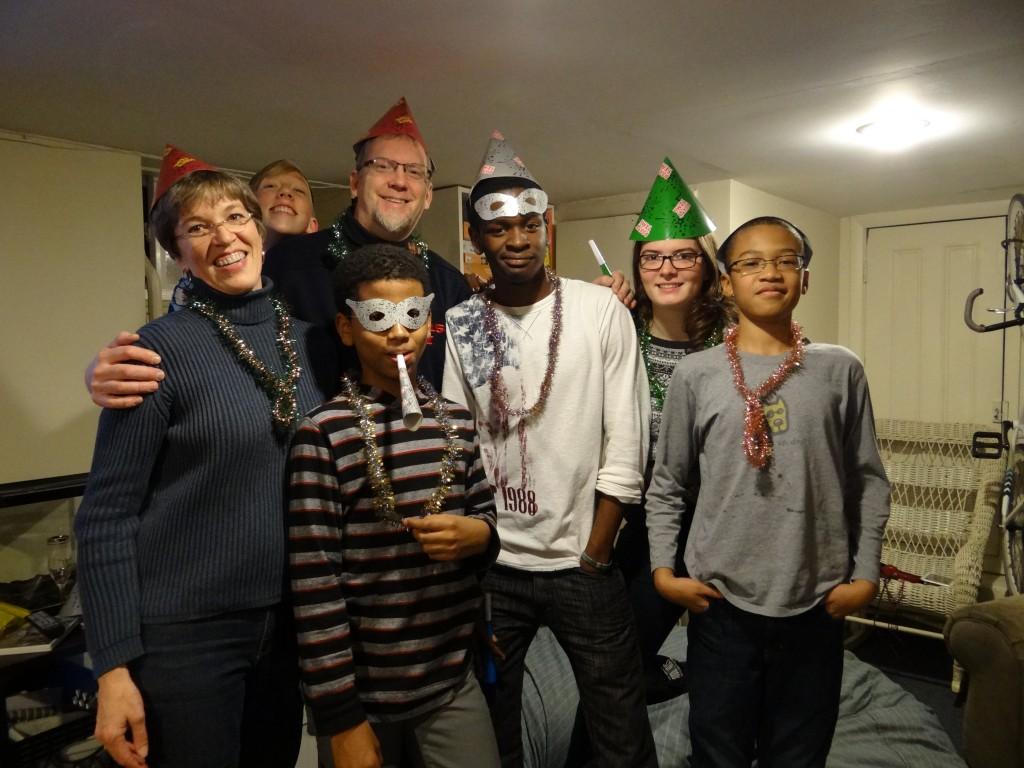

Aside from being the Assistant Principal of Organization, Health, and Physical Education, Ellen Fee has another job: caring for foster children.
Ms. Fee has been a foster mother since she married. Students who know Ms. Fee well weren’t surprised, citing her warm nature as being evident to everyone she encounters.
Senior Selina Feng said, “I think that it’s amazing for her to raise her own children, as well as those who are less fortunate. Kids need to grow up in an educational and safe environment, and her welcoming home is just the place for that.”
Born and raised in Minnetonka, Minnesota, Ms. Fee’s childhood included having many foster siblings, since her parents were foster parents as well.
She spoke of how there were over seventy foster children that had once stayed with her family because her parents were emergency foster parents; thus they generally took in children for any span of time, ranging from a day to a year. The children who came often stayed for very short amounts of time.
Ms. Fee’s inspiration to become a foster parent comes from her parents. “I had always wanted to be a foster parent. Having different viewpoints and life experiences and dealing personally with these kids enlarges your heart.”
Her husband had also been a deciding factor into whether or not she wanted to be a foster parent. Luckily, they grew up in the same type of family. “My husband also had a lot of students staying over at his family’s house so we were both used to that and had that expectation going into marriage,” she explained.
She welcomed her first foster daughter in 1997.
“She has three kids and her family still celebrates Christmas with us and comes over on the weekends,” Ms. Fee said.
Many foster children have since lived with the Fee family, and many come back later in their lives to keep in touch with her.
Of course, there are still hardships in having foster children. It’s generally known that teenagers are more difficult to take in than younger children, but Ms. Fee’s up for the challenge.
“I love teenagers,” she stated. “The hardest part is questions like ‘When are you coming home? ‘No, I need you home closer to 7 o’clock’ or ‘I just gave you money for a MetroCard yesterday, what happened to that money?’ and those types of questions that parents are obligated to interrogate their children with. It’s a lot easier to have foster kids at an earlier age because you can teach them about money and discipline, but when they’re a teenager, they are set in their ways. Some have had tough situations, but now they’re coming into our family with these expectations about school and homework and jobs.”
She then went on to talk about one of her foster children, who particularly had a hard time adjusting with her family.
“One stayed with us for a little while and I just remember getting into so many arguments and emotional discussions every night. I remember coming to Townsend Harris and being so exhausted. After a year we had to ask him to leave, and he lived in a group home for a year and then came back to live with us for another year and then went into the Army; he’s still in the Army. He’s around 32.”
Ms. Fee also has two children of her own, Annalise and Maricel. She believes that these experiences help widen their world views.
“My mom’s the best at what she does because she’s loving. She has this warm heart, and she’s always open to accept new kids into our home,” Annalise said. She has also developed close relationships with her foster siblings, but said that none could compare to the relationship between her and Maricel because they’ve been together their whole lives.
Getting along with new siblings can be difficult, but Annalise said otherwise. “My parents are amazing at what they do and they’re good at caring for other people and adjusting to other people and it’s never been a problem for me because it’s easy for me to follow in their example.”
Although Annalise has gotten along with many of her foster siblings, there are few that have proven to be more difficult to get along with because of differing values.
“I realize that maybe people don’t believe the same things that we do. There’s this one story that my mom always tells of one of my foster siblings. He came from a family where men were in charge and that’s not how it works in my family at all. It was little things, like at dinner my mom would ask my dad to butter the bread and he would be like ‘No, the woman butters the man’s bread, the man doesn’t butter the woman’s bread!’ and it was just something where we were all like ‘What?’ It was like every time, he was really persistent on this whole bread-and-butter thing and I just thought, ‘Why does it matter?’ and so it’s things like that,” Annalise said.
“You don’t want to impose on other peoples’ values, but they also have to get along with your values because it’s a home, a family, and it’s always a challenge to work together,” she concluded.
When asked about whether or not she would want to grow up and be a foster parent, Annalise responded, “Maybe when I’m older and I have the financial stability and time to do it, then I definitely would.”
Foster parenting is far from easy. With a staggering number of 400,000 foster children in need of homes in the U.S., the need for foster parenting grows. It takes a lot of time, energy, and compassion to be a foster parent.
As for Ms. Fee, she’s accomplished one of her life goals.
“I think foster parenting is one of the biggest achievements in my life,” she said proudly.
































